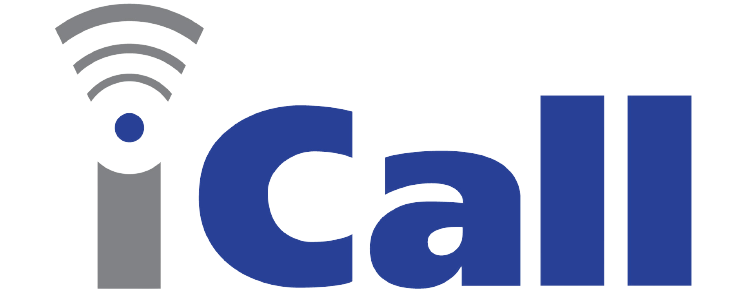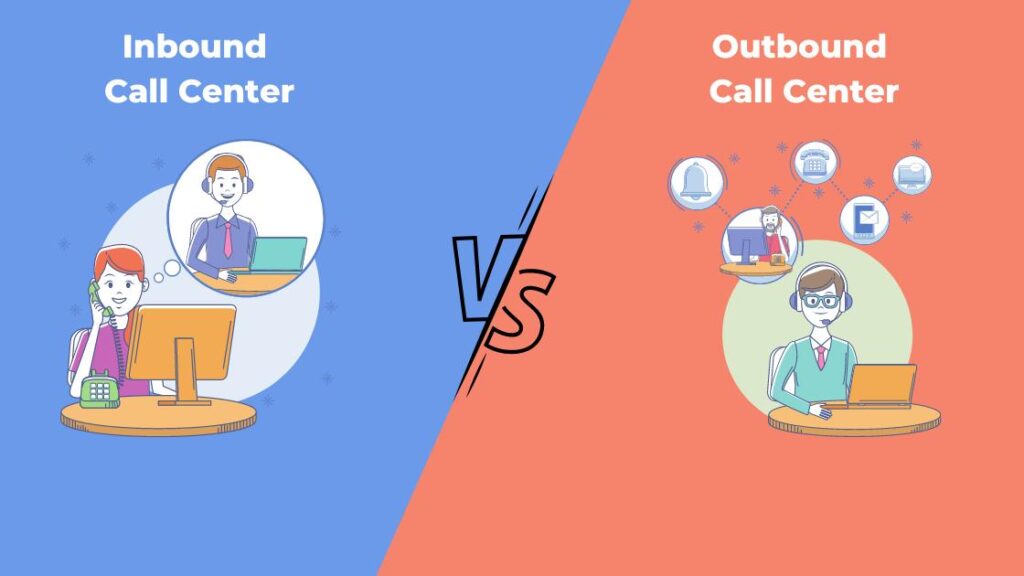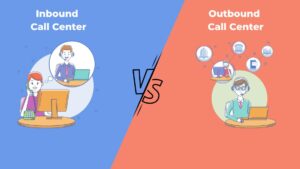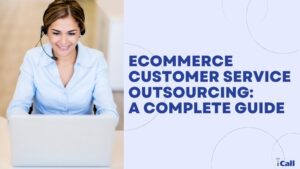Let’s create a scenario. You’re building a thriving business, and your sales are increasing. However, you would like to scale your business further, as any owner would. The only obstacle standing in your way is that you don’t want your workers to get overwhelmed, and you don’t have the capacity to hire more people. What do you do? It’s simple: hire an inbound or outbound call center, depending on your needs, of course.
Now, this may raise the question, what are inbound and outbound call centers, and what’s the difference between them? The short answer is that inbound call centers help you manage incoming calls, while outbound call centers help drive sales by reaching out to prospecting customers.
In this post, we’ll dive deeper into how outsourcing these necessities may be precisely what you need and which one of the two is right for your business. We’ll start our adventure by discussing each one in more detail and build our understanding from there. Ready? Then, let’s go.
What Is An Inbound Call Center?
Inbound call centers are third-party companies that answer incoming calls on behalf of your business. They focus more on customer service but have a few other types in their arsenal to ensure customers get what they’re looking for.
These types of inbound call centers can range from answering simple questions to helping clients with billing issues or anything else they may need. But, more on that later.
What Are The Benefits Of An Inbound Call Center?
The benefits of employing an inbound call center for your business are massive.
- Cost Savings: Outsourcing your customer service can be much more cost-effective than having an inbound call center of your own, as you won’t need to hire a bunch of people and pay their salaries. Instead, you pay for the services you need when you need them.
- Improved Customer Satisfaction: When customers call, they expect to have their problems solved right away. Having an experienced team on the other side of the line ensures that customers get the help they need in a timely manner.
- Build Relationships: Since inbound call centers focus on customer service, you can build a friendly and trusting relationship with customers. This is important for any business that depends on customer feedback and loyalty.
- Increased Efficiency: Instead of having your employees deal with customer service calls, they can go back to doing what they do best—developing products and services. Furthermore, inbound call centers provide businesses with an efficient way to handle customer inquiries, complaints, and other requests. This will lead to increased efficiency and productivity while also managing incoming calls.
- Customer-Focused: With an inbound call center, your customers will always be the priority. They will have someone to talk to and get through their issues without having to wait hours or days for a response.
- Manage Higher Call Volumes: If your business’s call volume keeps increasing, inbound call centers are the perfect option. They are designed to handle large amounts of calls and have the experience to do it quickly and efficiently.
- Technology Upgrades: As technology evolves, so do inbound call centers. They strive to stay up to date with the latest technologies and software to provide their customers with the best customer service experience.
- Free Up Resources: Having an inbound call center will free up your resources, allowing you to focus on more pressing tasks for the company.
- Identify Pain Points: An inbound call center can help you identify the areas of your business that need the most attention. This way, you can make changes to those areas and create a better customer experience.
There you have it, the benefits of inbound call centers. Now, let’s move on to what an outbound call center is and why it might be the right choice for your business.
| Did you know? “96% of consumers say excellent customer service builds trust.” – Time Doctor |
What Is An Outbound Call Center?
On the opposite side of the scale, an outbound call center is a customer service team specializing in making outgoing calls to customers. Sales teams mainly utilize this type of call center as they make calls to prospecting customers in an attempt to close a deal.
They also use their expertise to publicize the company’s products and services and build relationships with customers to keep them coming back.
The 2 Categories Of Outbound Call Centers
There are two outbound call center categories of which you should take note. These are, respectively, warm and cold outbound call centers. Here is a quick drill-down of each one.
Warm Outbound Call Centers:
This category involves calls to customers who have already had some sort of contact with the company. For example, it could be in the form of an email, a visit to the company’s website, or any other type of prior interaction. These calls are often more welcomed, as the lead had previous contact. Therefore, they usually have higher conversion rates.
Cold Outbound Call Centers:
Cold calling is one of the oldest forms of outbound sales and involves calls to customers who haven’t had prior contact with the company. Businesses mainly use these call centers for sales purposes.
This is the customer’s first interaction and impression of the business. It’s a make-or-break situation because it either results in a new customer or a lost prospect.
Potential customers often don’t enjoy receiving random calls, resulting in distrust or frustration. Therefore, entrusting this task to a team of experts who know how to handle these situations is essential.
What Are The Benefits Of An Outbound Call Center?
The main benefit of having an outbound call center is that it can help increase your sales drastically. But here is a list of a few more intriguing benefits this kind of call center service can provide.
- Improve Customer Loyalty: Making calls to customers is a great way to start or build relationships and, in turn, increase customer loyalty. Whether it’s a warm or cold outbound call, many customers may feel valued. The key here is to follow up after a set time and do so regularly. Unless they told you not to, then don’t do that.
- Generate Leads: Outbound call centers are perfect for generating qualified leads that may convert into paying customers.
- Save Time: Outbound call centers can save you a lot of time. Why? Because they can make dozens, if not hundreds, of calls in a single day.
- Reduce Operational Costs: Similar to its inbound counterpart, outsourcing your outbound call center will help reduce operating costs. It’s more cost-effective than having an in-house team because you only have to pay for the service when needed.
- Gain Customer Insights: Making outbound calls is a great way to gain customer insights, such as their concerns or interests. You can use this data to improve your services, products, or processes and increase sales.
- Enhance Scalability: An outbound call center can easily be scaled up or down, depending on the needs of your business. They have advanced technological capabilities that most companies don’t—making it easier for them to scale your business during peak season and vice versa.
- Increase Customer Retention: Outbound calls are great for customer retention, as they are a perfect way to check in with customers who have had a bad experience. This can help strengthen relationships that would otherwise wither.
With these benefits backing your overall service and sales teams, there’s no doubt that outbound call centers are a powerful asset to have.
Differences Between Inbound And Outbound Call Centers
There are several factors to consider when comparing inbound vs. outbound call centers. But simply put, they are polar opposites of each other in their function.
Here is a comparison to make this simpler to understand.
| Basis | Inbound Call Centers | Outbound Call Centers |
| Purpose | They receive calls from customers or prospects | They make calls to leads or prospects in an attempt to make them a customer |
| Focus | Building customer satisfaction, improving customer retention, and providing customer service for customers with concerns or questions. | Make sales, build relationships and leads, or deepen interest by reaching out to prospects via warm or cold calls. |
| Marketing Type | It uses the push marketing type | It uses the pull marketing type |
| Warm Customers | High | Medium |
| Cold Customers | Low | High |
You should now understand the difference between inbound vs. outbound call centers. So, let’s take a deeper look into the different types of inbound and outbound call centers next.
Types Of Inbound Call Centers
Many companies use inbound call centers for customer service and relationship building. So, here is a list of inbound call center types that you can use to provide the best customer experience.
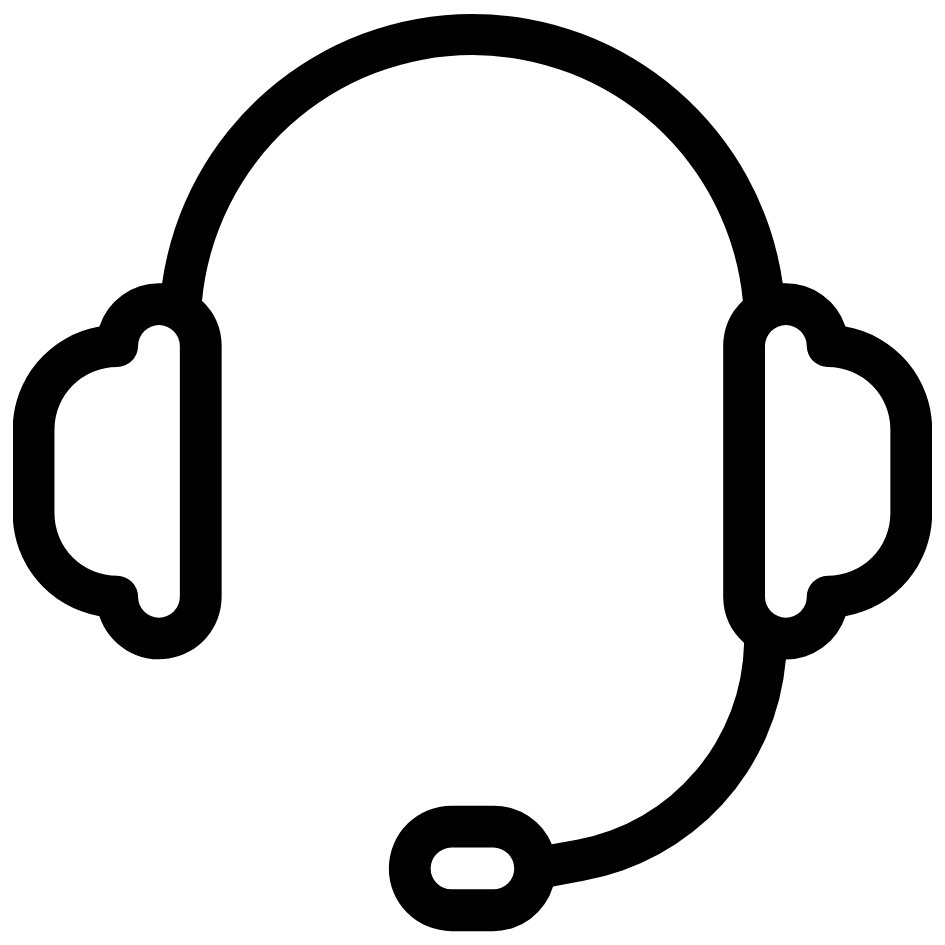
1. Customer Service And Care
This is where existing customers reach out to ask questions, voice their concerns, and manage their accounts. It includes:
- Inquires about returns
- Feedback from a customer
- Changes to mailing addresses
- Over-the-phone payments
- Queries about products, services, policies, and more
Many inbound call centers have recognized the power of electronic resources and are utilizing recordings to direct customers on hold to appropriate online solutions. This practice has helped address customer concerns quickly and efficiently.
| Did you know? “59% of customers prefer communicating their questions and issues via live calls.” – Time Doctor |
2. Technical Support
This is where customers reach out when they have technical issues with a product, service, or software. Often, it will be when a product breaks or isn’t working correctly, and the customer needs help to try and fix it.
Usually, these customers aren’t in a good mood, especially when the product or software is new. That’s why it’s crucial that these representatives have a peaceful nature and keep their cool when emotions run hot.
With the right team, you can rest easy knowing that they’ve got your customers covered. They should be able to calm down your upset clients and keep them loyal to your business. So, don’t skimp on the technical support team.
3. Upgrade And Renewal Inquiries
This is when customers reach out to inquire about renewing or upgrading their existing products or services. Therefore, you must have a customer-first approach, which will give your customer base more confidence in your company’s quality and customer service standards.
Companies that find this call most helpful for this type of inbound call center are those that offer subscriptions or SaaS. These companies often receive calls from customers looking to expand their current plans. So, it’s essential to have a representative that can either upgrade the customers themselves or divert the call to someone that can help.
4. Inbound Sales
Even though most inbound calls are from current clients, there are occasions where the call comes from someone that isn’t. Most of the time, these prospecting clients are in search of more information about a product or service. This is what’s known as inbound sales.
The need for an inbound sales team has decreased in today’s modern age. The leading cause for this drop is online purchasing. But, there are still many customers that prefer calls over online sales. And when these customers come knocking, your team needs to be prepared.
Your inbound call center can make customers out of such leads by providing top-notch service. That’s why many larger companies dedicate entire teams to only inbound sales. In doing so, these organizations can ensure their team has the proper focus and mindset.
To make these calls count, inbound sales agents should aim to build a strong relationship with the prospect. They should establish common ground and provide prospects with helpful information. In addition, agents should allow the prospecting customer to lead the conversation, inquiring with open-ended questions and being candid about gaining their confidence.
Types Of Outbound Call Centers
Outbound call centers are great for cold call sales but aren’t limited to this. There are a few different types of outbound call centers that might suit your organization’s needs:
1. Lead Generation
Companies frequently use outbound call centers to create leads, which is the process of engaging potential customers in order to generate interest in a product or service.
These calls should aim to get the prospect interested enough that they give you their contact information for further follow-up. Outbound call centers do this by providing prospecting customers with pertinent information about the product or service in a polite and friendly manner.
Lead generation calls should be short, as prospects often don’t want to spend much time on the phone. Agents should also make sure they ask permission before leaving their contact information with the prospect. This shows respect and will leave a positive impression of your company in their mind.
2. Telemarketing
This type of outbound call center makes calls to current customers to upsell or cross-sell products and services. Telemarketing agents should be friendly, confident, and knowledgeable so they can adequately explain the benefits of any product or service they’re offering.
They should also strive to connect with their lead, as this will increase the chances of a sale. The prospect should never feel like the agent is pressuring them, as this could damage their opinion of your company.
3. Appointment Setting
Appointment setting is an outbound call center service that involves scheduling appointments with potential customers on behalf of a business. This helps to maximize efficiency and prevent customer frustration due to them waiting for a response from sales personnel.
Agents should ensure they have all the information needed to properly set up an appointment, such as time and date availability, customer contact information, and other pertinent facts about the customer or their desired service. They should also explain to prospects any potential benefits associated with booking an appointment in advance.
4. Market Research
You can also use outbound call centers for conducting market research. For this type of service, agents must have a thorough understanding of the company’s products or services and be able to explain them in detail to potential customers.
Agents can then ask questions that will help create insights about customer preferences and opinions, as well as any other factors related to the product or service that the business can use to improve it.

5. Telesales
Telesales is an outbound call center type that uses sales techniques to close deals over the phone. Here, agents should focus on actively engaging customers by conversing with them and offering solutions based on their needs.
Agents must also be articulate, professional, and empathetic in order to make a positive impression on potential customers. Furthermore, they should be prepared to handle any objections that may arise and have a strategy in place for overcoming them.
What Are Hybrid Call Centers?
Hybrid call centers are outbound and inbound call centers that utilize both types of services. Hybrid call centers are often used for customer service, as agents can use their skills to handle both inbound and outbound calls.
This allows companies to provide more comprehensive service to customers as they utilize agents for tasks such as taking orders, answering questions, and setting appointments.
However, inbound and outbound call center outsourcing is the simpler solution to providing professional customer service. It’s becoming increasingly popular in today’s economy, allowing businesses to take advantage of the specialized skills and cost savings that come with outsourcing call center services. But that may make you wonder how to find such a partner. So, let’s take a look.
Choosing A Call Center Outsourcing Partner

When selecting an outsourcing partner, it’s essential to look for one with experience in both inbound and outbound call center services. In addition, the best partners will have experience working with businesses of all sizes and industries, as this will ensure they understand the tasks required for any project.
They should also have a reliable customer service system so your customers can always get the help they need. Additionally, it’s essential to ensure your partner has a team of agents skilled in both inbound and outbound services and has access to the latest technology and resources.
The best way to ensure your partner is a good fit is to ask the right questions. Here’s a previous post we wrote about which questions to ask: 12 Questions to Ask When Outsourcing a Call Center.
| Did you know? “A total of 50% of customers believe that there is a significant need for enhanced Customer Service and support from most businesses.” – Innovature Inc. |
Hanging Up
In the battle of inbound vs. outbound call centers, both can provide an excellent resource for businesses needing to manage their customer relationships. Furthermore, there are many different types of inbound and outbound call centers to choose from based on the needs of your business.
When looking for the best call center outsourcing partner, make sure you choose one with experience and expertise in whichever type of service you need and a comprehensive set of features.
iCall Services provides outstanding expertise and features while delivering high-quality service to its clients. So, if you’re ready to take the next step to streamline your customer service operations, then request a quote from iCall services today. We’re sure the results will be delightful.
Frequently Asked Questions
An inbound call center is a customer service center specializing in handling incoming customer calls. Inbound call center agents typically support customers, answer their questions, and take orders.
An outbound call center is a customer service center specializing in making outgoing calls to customers. Agents in an outbound call center typically use sales techniques such as cold calling and upselling to generate leads and close deals.
Inbound call centers provide businesses with a cost-effective way to handle customer inquiries and complaints and take orders. Additionally, inbound call centers can also help increase customer satisfaction and loyalty.
You can use outbound call centers to generate leads and increase sales. They can also help businesses build customer relationships and provide key customer insights.
When selecting an outsourcing partner, it’s essential to look for one with experience in both inbound and outbound call center services. You should also ensure they have a reliable customer service system in place and a team of skilled agents in both inbound and outbound services. Finally, you should ask the right questions to ensure your partner is a good fit.
